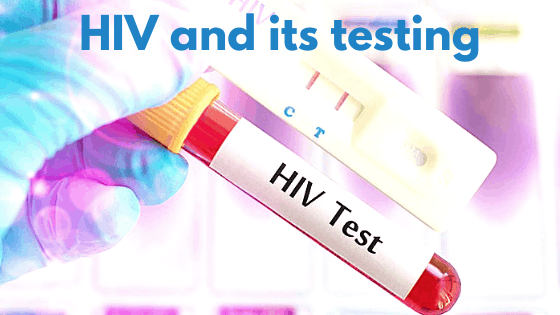
HIV testing is also known as HIV screening. It is the way to detect if you have the virus in your body. HIV test checks various fluids and blood in the body to know if one has a virus or not. It sometimes takes time for the virus to enter our body and grow. Thus, most of the HIV tests are not able to detect the virus rapidly. It also requires time to prepare antibodies and other medicines to cure the virus.
If anyone has a virus, detecting it early can be seen as a sign to get treatment quickly. It also indicates a long and healthy life. Also, the steps can be taken to stop the transmission of HIV. I order to save the offspring from HIV, it is suggested for a pregnant woman to get tested early.
According to the center for disease control and prevention, every individual who is at a higher risk of the disease should get tested at least once in a year. High-risk individuals include the following:
It is a test that looks for the protein or other liquid that the body has made within 14 to 60 days of an HIV infection. The results of this test are more reliable and accurate. These tests may also provide a false negative result when the results are prompt i.e. in 30 minutes of HIV testing. A false-negative result means that the report may indicate you negatively for the virus even when you suffer from it.
These tests are a combination of antibody and antigen which may give results faster than the screening test. These tests examine a p24 protein, a fragment of the virus, and also look for antibodies for the virus. The protein transforms within 4 weeks of the virus contamination. It can take around 20 minutes to provide prompt results.
It diagnoses the virus within 10 days of the contamination. If a person experiences mild symptoms of the virus, they may choose this test as a ready and favorable option even if it is costly.
An HIV test may involve taking a blood sample or urine sample or a mouth fluid (except saliva) for a lab test. The results may sometimes be false negative as there is not much provision for antibodies.
Some in-house tests may involve taking a small blood sample from the finger and send it to the lab for examination.
Other tests include oral or fluid tests at home. These tests give prompt results but may also give a false negative. In case tests are positive, a lab test is done further to validate
HIV test results depend on the condition of the patient. Also, some patients attach their names to the kit and others keep it confidential.
Positive results may arise when you had a rapid test or a lab test. For better results, you must go for a standard or detailed lab test. Some of the detailed tests include:
A positive result does not indicate that the patient is suffering from AIDS. HIV can be prevented at a lower level by using ART from reaching AIDS.
If you test negative for the virus, your sexual partner may be prone to it. Hence, be careful during sexual activities.